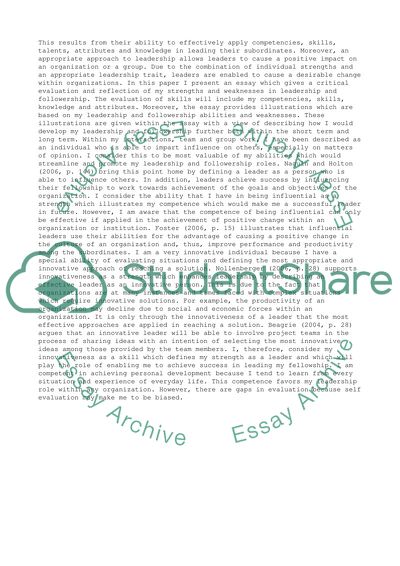Cite this document
(“Leadership: Important Aspect of the Society Essay”, n.d.)
Retrieved from https://studentshare.org/management/1396747-leadership-an-organisation
Retrieved from https://studentshare.org/management/1396747-leadership-an-organisation
(Leadership: Important Aspect of the Society Essay)
https://studentshare.org/management/1396747-leadership-an-organisation.
https://studentshare.org/management/1396747-leadership-an-organisation.
“Leadership: Important Aspect of the Society Essay”, n.d. https://studentshare.org/management/1396747-leadership-an-organisation.


